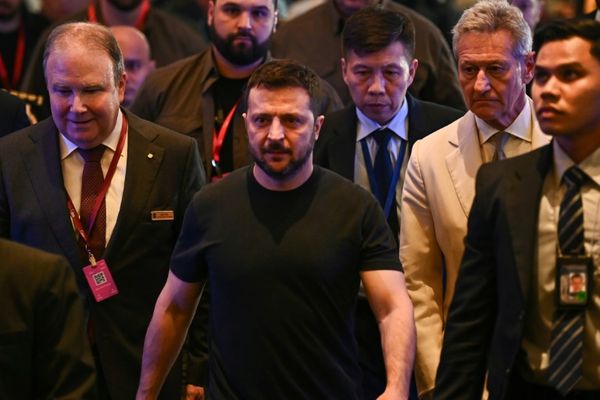Music and the Tamil landscape have been inseparable, right from the Sangam Era. Several legendary figures have contributed to the evolution of music down the ages and played a crucial role in intertwining art and culture with the social milieu.
Three such personalities were the Tamilisai Moovar (Tamil Trinity) — Muthuthandavar, Marimutha Pillai, and Arunachala Kavirayar — who composed conventional kritis in Tamil and made invaluable contributions to the evolution of Carnatic music. All three lived in Sirkazhi in present-day Mayiladuthurai district and composed numerous kritis much before saint Tyagaraja and others.
Though there is no authentic information on the exact period during which Muthuthandavar lived, the Tamil Virtual Academy of the State government, which offers various academic courses online and is involved in digital documentation of rare printed books, periodicals, manuscripts, photographs, and audio-visual materials of Tamil literature and culture, indicates his period could roughly date back to the 16th Century. Arunachala Kavirayar (1711-1779) and Marimutha Pillai (1712-1787), who lived two centuries later, continued composing kritis in Tamil.
Elaborating on the contribution of the Tamilisai Moovar to Carnatic music, Rama Kausalya, former Principal of Tamil Nadu Government Music College at Thiruvaiyaru, says it was Arunachala Kavirayar, who first set the stage for operas (musical dramas) in Tamil through his Rama Natakam.
Kavirayar was born to Nallathambi Pillai and Valliammai at Thillaiyadi, near Thirukadaiyur. He moved to Sirkazhi and was patronised by the Dharmapuram Adheenam. He taught Tamil to Kothandaraman and Venkataraman, his disciples, who later assisted Kavirayar in composing music for Rama Natakam.
Kavirayar composed 258 kritis by simplifying the verses of Kamba Ramayanam and became the first to compose musical drama in Tamil. “His songs are widely sung by musicians in concerts, even now, and provide a sense of comfort for contemporary performing artists to exhibit nuances of the Ramayana plot,” Dr. Kausalya said. Kavirayar’s Rama Natakam, similar to Kamba Ramayanam, was also staged at Sri Ranganathaswamy temple in Srirangam. His Rama Natakam was also called Sangeetha Ramayanam. His other contributions include Asomuki Natakam, Sirkazhi Sthala Puranam, and Sirkazhi Kovai.
Marimutha Pillai was born in Thillaividangan village near Sirkazhi. He was a pioneer in composing Ninda Stuti Kritis, in which the divine was praised through questioning and criticism with love. On a pilgrimage, he visited many temples and composed nearly 25 kritis in 17 ragas, references in Tamil Virtual Academy say. His contributions include Puliyur Venba and numerous Padhigams and Kuravanji.
Another pioneer in composing Tamil Kritis was Muthuthandavar, who was born in Sirkazhi. Dr. Kausalya said the compositions of Muthuthandavar found a place both in music and dance concerts. Throughout his life, he had composed numerous padams in reverence of Thillai Natarajar. He moved from Sirkazhi to Chidambaram and composed kritis, particularly on the cosmic dance of Lord Nataraja called Tandava Kritis.
“Though compositions of Tamilisai Moovar are widely sung by musicians in concerts, some of their kritis are yet to be popularised,” said S. Karpagam, associate professor, Department of Music, Tamil University, Thanjavur.
The compositions of Tamilisai Moovar are also widely researched and are part of the study text at music colleges. Pavalar Balasundaram made immense efforts and wrote a book on Kavirayar’s Rama Natakam, which is available at Saraswathi Mahal Library in Thanjavur, she said. The compositions of Tamilisai Moovar continue to lend themselves to research, Dr. Karpagam said. Calling Muthuthandavar the father of Tamil Naatiya Padams, she said only 25 padams and 60 kritis among his works are widely sung by musicians. The Thirupamburam music family, which comes in the lineage of Muthuthandavar had documented his compositions and released a book, she added.
Honouring their contributions
To honour the contributions of Tamilisai Moovar, former Chief Minister M. Karunanidhi in 2000 proposed the construction of a manimandapam, a memorial, on a parcel of 0.44 acres of land in Sirkazhi town. The project was shelved for various reasons and taken up only in 2010, a decade later. The memorial building was completed in 2011 at a cost of ₹1.51 crore. The then Chief Minister Jayalalithaa virtually inaugurated the manimandapam on February 20, 2013.
The memorial, under the maintenance of the Information and Public Relations Department, showcases various works and contributions of Tamilisai Moovar to language and music. It also has a spacious hall for conducting meetings. To renovate and repair the memorial building, the State government sanctioned ₹47.02 lakh in 2022. Earlier this year, the government sanctioned ₹13.97 lakh to create additional facilities for scholars and candidates preparing for competitive examinations, who throng the memorial.







